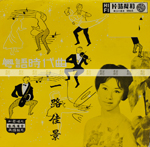In the time when Wong Jum-sum grew up, Cantonese pop music was but one of many kinds of music broadcast on radio. In a society where over 80% of the population spoke Cantonese, that came as a major surprise. Wong has a simple explanation for this. Cantonese pop grew out of traditional Cantonese music, but it could not build on the popularity of the latter in the face of severe competition. Compared to Western or Mandarin pop, it lagged behind in the areas of composition, lyrics, singing, accompaniment, recording, distribution, and marketing. Its competitors had a head start in talents, organization, and technology that took Cantonese pop more than a decade to come close.
Not everyone agrees with Wong’s diagnosis. Other scholars argue Canto pop, even in such early days, had a unique vibrancy that came from a healthy disregard of the boundaries among different traditions and genres, be they local or foreign. Early Canto pop laid a solid foundation for modern Canto pop, which went on to dominate not only Hong Kong but most Chinese communities around the world.
The story of Cantonese pop awaits careful re-writing.

The recording industry and radio gave a strong push to the development of Canto pop. In 1952, Wo Sing Record Company produced a series of records explicitly entitled ‘Canto pop songs’ which aimed for the South-east Asian market. Soon there followed a radio program on Rediffusion called ‘Dancing Club on Air’, which was actually created in response to demand from that same market. Among the major contributors to the program were Lui Hung, Hui Yim-chau and Sin Kim-lai, most of whom had a strong background in Canto opera, but were open to new possibilities in modernizing their art.
Chou Chung was the host for ‘Dancing Club on Air’. His early training was in the theatre and jazz drums, and only got acquainted with the Canto opera tradition when he arrived in Hong Kong after the War. He became a bandleader at nightclubs, and was prolific in composing songs and writing lyrics since the 1950s. For these, he earned Wong Jum-sum’s accolade as the ‘the Father of Canto pop’.

























